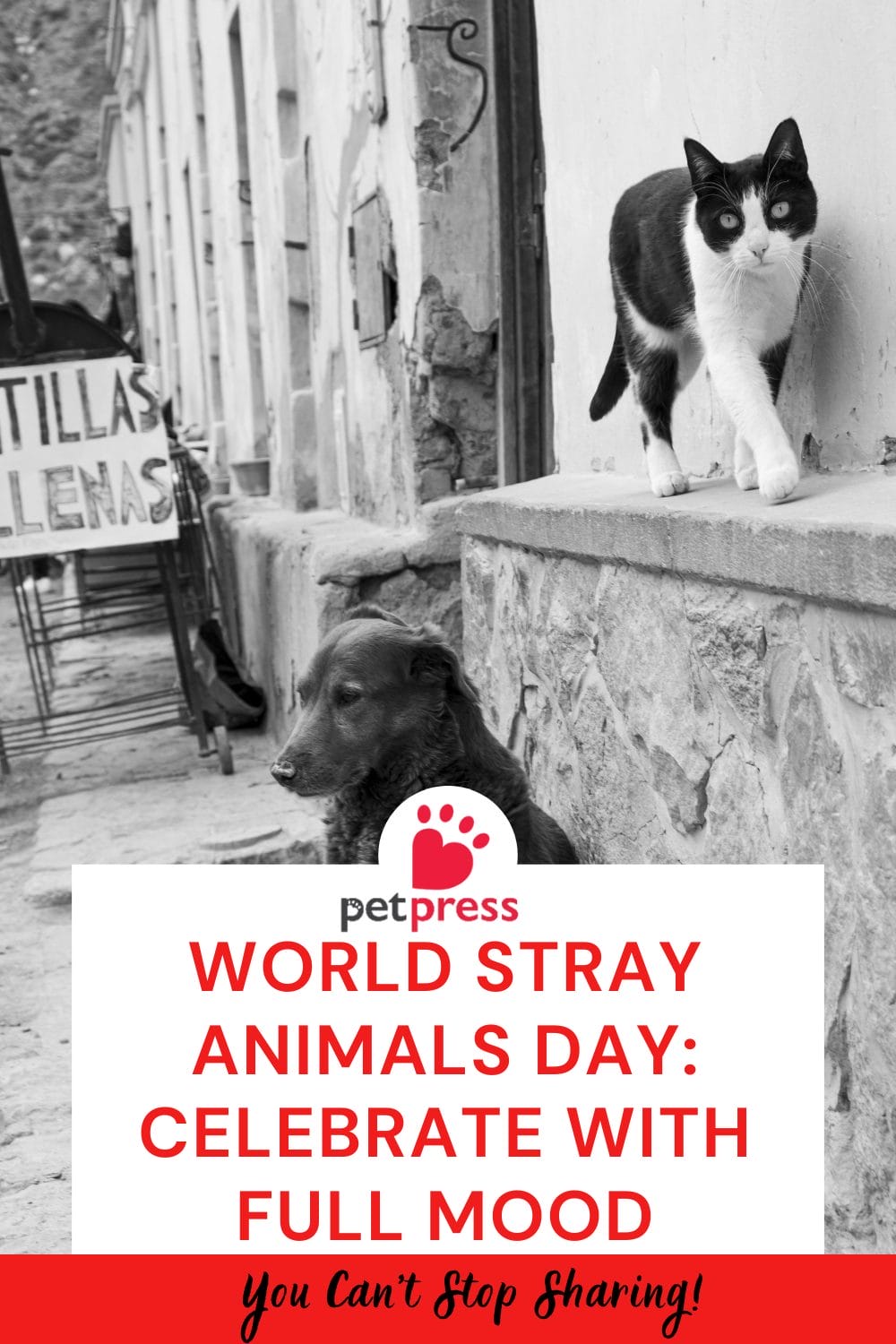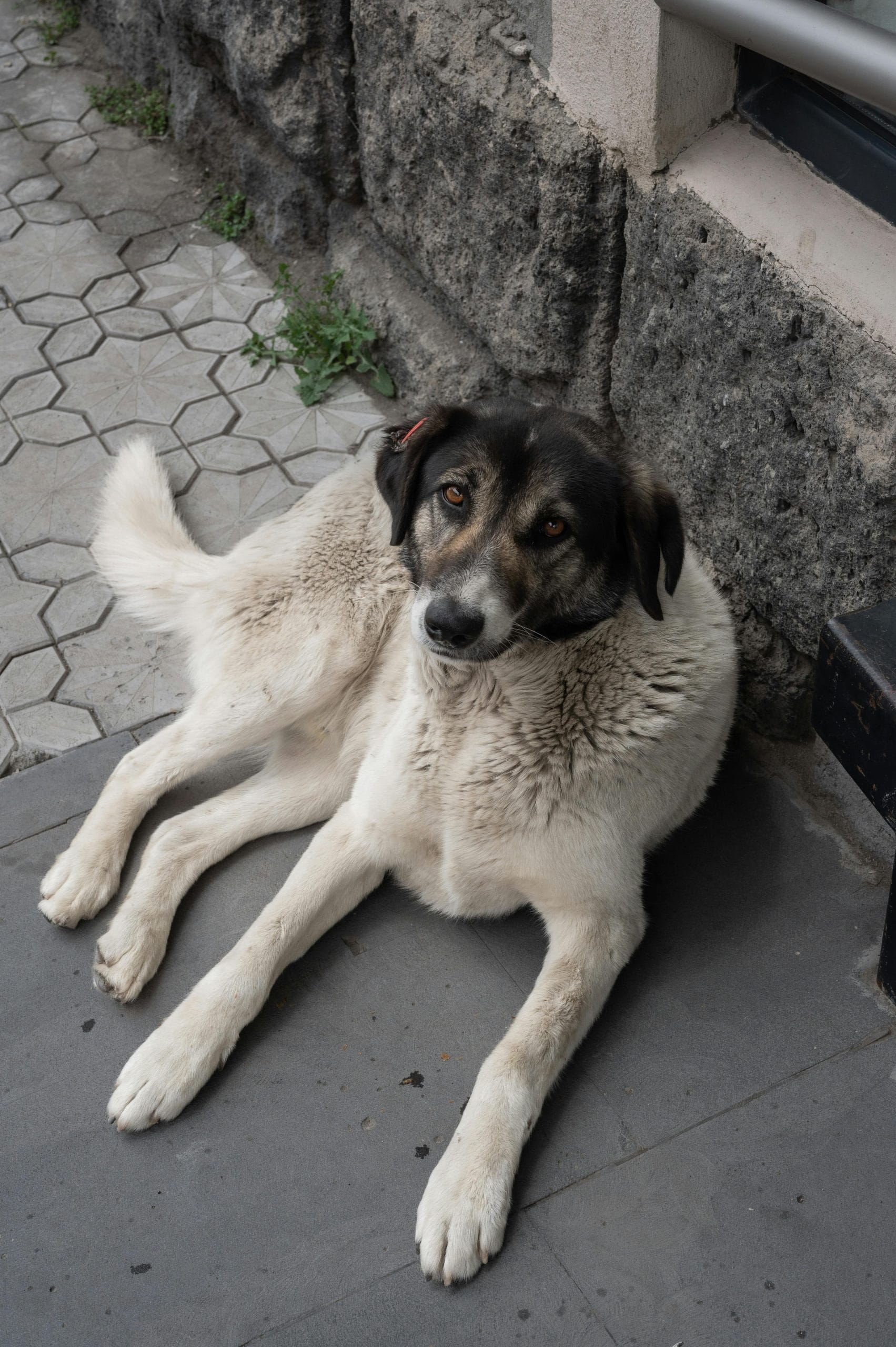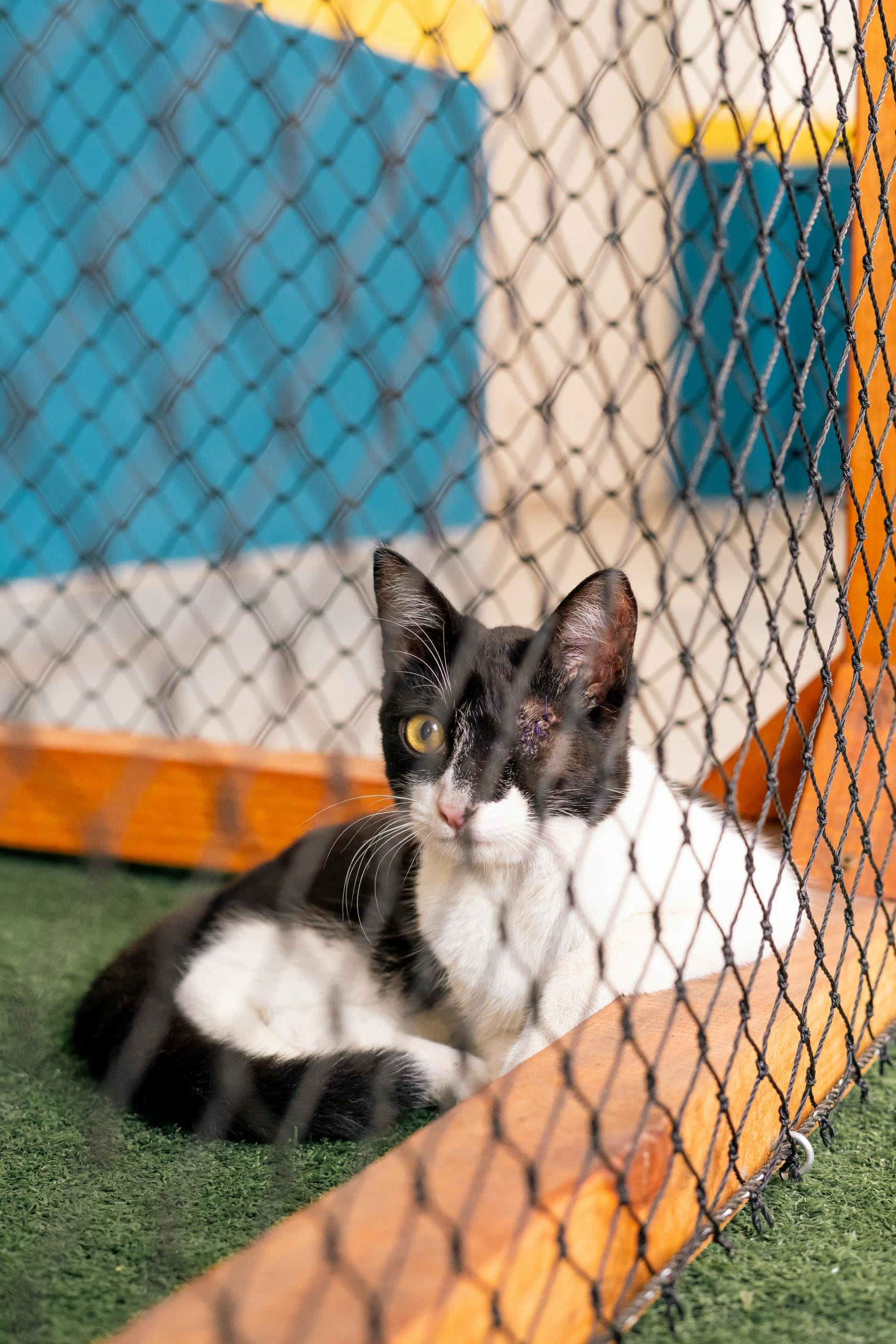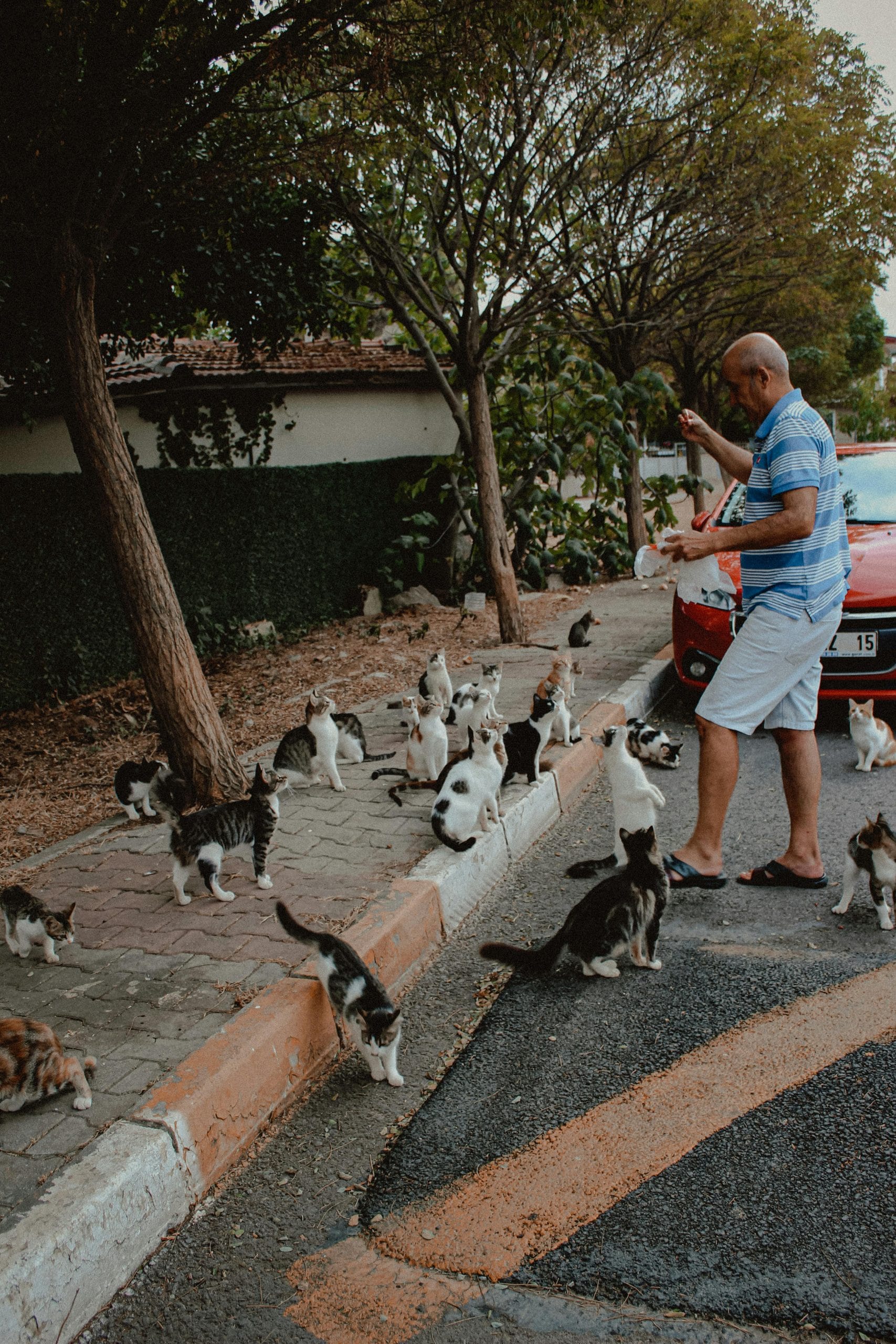
World Stray Animal Day, observed annually on April 4th, originated in 2010 during the Dutch National Stray Animals Conference, where over 100 organizations gathered.
The date was chosen as it falls exactly six months before World Animal Day. This day serves as a reminder of the plight faced by millions of stray animals worldwide.
Research reveals staggering figures, with an estimated 70 million homeless dogs and cats struggling on the streets in the United States alone.
World Stray Animal Day is a call to action for everyone to raise awareness about these alarming statistics and to unite efforts to find solutions.
It’s a day to acknowledge the challenges faced by stray animals and to advocate for their well-being.
Through awareness, education, and collective action, we can work towards reducing the number of stray animals and ensuring they receive the care and compassion they deserve.
How to Help Reduce the Number of Stray Animals?

Pet overpopulation is a significant issue stemming from various factors, including uncontrolled breeding, lack of spaying or neutering, and irresponsible pet ownership.
Sadly, this leads to the euthanization of approximately 2.4 million healthy cats and dogs in U.S. shelters annually. However, there are numerous ways we can address this problem:
Spay or Neuter Your Pet
Preventing pet overpopulation is essential in addressing the issue of stray animals. One of the most effective measures is spaying and neutering your pets.
These routine surgical procedures, performed by veterinarians under anesthesia, involve the removal of reproductive organs.
For female animals, spaying entails the removal of the ovaries and uterus, while male animals undergo neutering, which involves removing the testicles.
Aside from controlling reproduction, spaying and neutering offer various benefits that positively impact the health and behaviour of pets.
These procedures can reduce the risk of certain reproductive cancers and infections, as well as eliminate behaviours associated with mating instincts, such as roaming and aggression.
Additionally, spaying and neutering contribute to a cleaner environment by preventing unwanted litters and reducing the number of stray animals in communities.
Overall, spaying and neutering are essential components of responsible pet ownership, promoting the well-being of individual animals and helping to address the larger issue of pet overpopulation.
Microchip Your Furry Friend
In the vast expanse of the United States, a staggering estimate looms over the nation’s pet-loving populace: each year, a heart-wrenching tally of approximately 10 million beloved dogs and cats find themselves lost, wandering in the labyrinth of streets and neighbourhoods.
These creatures, cherished members of countless families, inadvertently stray from the safety of home for various reasons, leaving behind worried owners and hopeful hearts.
Tragically, a significant portion of these wayward companions end up in the care of shelters, their once cozy homes replaced by the unfamiliar confines of kennels and cages.
Despite the diligent efforts of shelter staff, a poignant reality persists: many of these displaced pets remain unclaimed, their owners unable to locate them amidst the sea of strays.
Consequently, these furry souls are left with uncertain fates, awaiting the possibility of adoption into new homes.
Indeed, the decision to microchip a pet transcends mere precaution; it is a testament to the unbreakable bond between owner and companion, a vow to safeguard against the uncertainties of fate.
In the event of an accidental escape, this tiny marvel ensures that the journey back home is swift, seamless, and brimming with the joy of reunion.
Adopt, Don’t Shop

Instead of opting for a pet from a breeder or pet store, embrace the opportunity to make a profound difference by choosing adoption from a local shelter or pet rescue.
In doing so, you become a hero in the eyes of a furry friend awaiting their chance at a second lease on life.
Your decision to rescue not only transforms their world but also shapes your own, as you embark on a journey filled with mutual love and gratitude.
To your new companion, you are more than just an owner—you are their savior, their guardian angel who rescued them from the uncertainties of life on the streets or in overcrowded shelters.
Every wag of their tail, every purr, is a testament to the bond forged through your act of compassion.
Moreover, by adopting from a shelter or rescue, you are not only providing a loving forever home but also paving the way for another stray to find refuge.
With each adoption, the cycle of homelessness is disrupted, and the burden on shelters is alleviated, creating space for more animals in need to receive care and attention.
In essence, adoption is a ripple of kindness, echoing through the lives of both humans and animals alike.
It’s a chance to make a tangible difference, one paw print at a time, and to experience the immeasurable joy that comes from giving a deserving soul a second chance at happiness.
Why are stray animals such a big problem?

the financial burden imposed by animal impoundment, sheltering, euthanasia, and disposal of homeless animals in the United States is staggering, with taxpayers footing a hefty bill ranging from one to two billion dollars annually.
This substantial expenditure underscores the immense scale of the issue and the extensive resources required to address it.
Beyond the economic impact, there exists a more pressing concern: the threat posed by dangerous diseases transmitted by stray animals.
Chief among these is rabies, a deadly virus that spreads from animals to humans through saliva, typically via bites.
The consequences of rabies infection can be dire, with an estimated 40,000 to 70,000 human deaths attributed to the disease each year worldwide.
Conclusion
World Stray Animals Day is an opportunity to raise awareness about the millions of these unfortunate animals, who are in desperate circumstances through no fault of their own.
Strays are everywhere, from inner-city streets to rural villages and the countryside, and can include dogs, cats, or any animal that has been abandoned or lost.
- Dogs Pooping Blood: A 2026 Guide for Concerned Pet Parents - February 23, 2026
- How to Celebrate a Dog’s First Birthday on a Budget: 2026 Guide - February 18, 2026
- Best Shampoo for Sensitive Skin Dog Grooming: 2026 Guide - February 12, 2026


GIPHY App Key not set. Please check settings